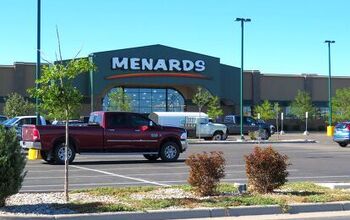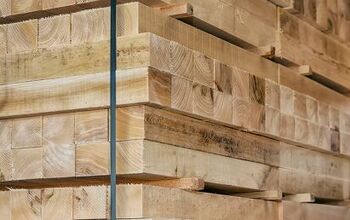13 Top Uses For Coconut Coir And Husk In Your Yard

As you spend more time in your garden and at your local nursery, you’ll quickly start finding that many natural materials can be incorporated into your outdoor landscape. There are various mulches, types of gravel, nutrients, and even parts of a coconut you can fold into your outdoor landscapes. Coconut coir and husks are incredibly beneficial for your garden, but how do you use them, exactly?
Coconut coir is a valuable natural product that you can add to soil to enhance aeration, drainage, and soil retention. Coir and husks can be sprinkled on top of soil in your garden in place of mulch, helping protect roots and keep soil moist. Coir has nutrients, including potassium. It is also great to add to a compost pile to improve decomposition and drainage. You can use it to help start seeds or even to help grow plants hydroponically.
If you keep noticing coconut coir and husk in your local garden supply store, or live in a tropical climate where this resource is abundant, then keep reading. Coconut coir and husk are highly versatile and can be used in all sorts of amazing ways to benefit your garden. Below is a list of the best ways to use them.
13 Great Outdoor Uses For Coconut Coir And Husks
1. Soil Aeration
One of the best and most popular uses for coconut coir in a garden is to improve soil aeration. If you live somewhere with dense or clay-like soil that is easily compacted, then coconut coir can make your soil conditions more favorable.
Folding in some of these coconut fibers will create a more porous and sponge-like soil. It will be lighter and have better airflow than your previous soil. This is ideal for plant species with roots hat need lots of airflow.
2. Great For Water Retention
If you find your soil and plants drying out much faster than you’d like, then consider adding coconut coir and husks to the garden. In addition to improving airflow, coconut coir holds on to water better than many types of dirt.
These coconut fibers allow your plants to retain moisture hours, and even days, after they’ve been watered. This is ideal for dry and hot climates, where water is scarce and quickly evaporates. Coconut coir is also great for plants that like consistently damp soil.
3. Improves Drainage In Garden Beds
Many plants like well-drained soil. Without it, plants can become waterlogged and even experience root rot. Root rot and overwatering are two of the most common ways to kill plants. To help reduce the risk of these water-related problems, you need good drainage.
Coconut coir and husks are great to help improve drainage. They lighten up the soil, which makes it easy for water to trickle deeper into the earth, far beyond the roots of your garden plants. Adding coconut coir to your garden beds and container gardens is a great way to easily improve soil drainage.
4. Provides Roots With Added Protection
Sometimes roots become exposed, especially in windy and rainy climates. By adding coconut coir to the soil and surface, you reduce the risk of having displaced soil. This will keep the roots underground where they belong.
5. Can Be Used To Start Seeds
Coconut coir and husks can be great when you are starting many types of plants from seed. For one, coconut coir is less messy than dirt, and it’s very easy to use, especially when planting indoors.
Furthermore, most seeds like to stay moist constantly. Since coconut coir has great water retention, this makes it ideal for starting seeds. It is also free of fungi that can kill lots of seeds as they develop.
6. Improves The Productivity Of Your Compost
Your plants aren’t the only place you should put coconut coir and husks, especially if you have coconuts growing naturally in your area. Your compost will benefit from coconut coir and husk just as much as your garden.
The aeration and drainage that these coconut products provide are great for your compost. They assist with decomposition, so your compost will be finished quicker. Coconuts also provide added nutrients, including potassium. The great aeration and water retention benefits are beneficial to the health of your compost pile.
7. Makes A Great Mulch Substitute
If you live somewhere with lots of coconuts, then coconut husks are a fantastic mulch substitute. Not only do they make your garden look more beachy, but these husks are great for your plants.
Husks provide water retention and are also great insulators. This insulation helps keep your soil temperatures under control. They also add an extra layer of protection between the roots of each plant and natural elements above, just like a quality mulch does.
8. Adds Nutrients To Soil
Coconut husks and coir also have several nutrients that your plants can absorb over time, making them a natural plant food. This part of the coconut is naturally high in potassium and phosphorus, making it a great plant food. They are two nutrients plants need to thrive. When you fold coconut coir or husks into your soil, or place them on top like mulch, these nutrients will slowly release into the soil for your plants to absorb.
9. Great Bedding For Outdoor Animals
If you have a chicken coop or other domesticated outdoor animals, then coconut coir can come in very handy. It makes a great soft and absorbent bedding for all sorts of outdoor animals.
Coconut coir is dust-free, which is why animals with poor respiratory systems, like chickens, enjoy it. It is also a great home for lizards and other reptiles.
10. Helps Prevent Erosion
If you live in a flood zone or are in a region that experiences heavy rainfall, then erosion is a reality you must battle against. Coconut coir is surprisingly effective at combating soil erosion in your yard.
As mentioned previously, coconut coir is great at absorbing and retaining water. This allows it to absorb heavy rain and disperse water slowly into the soil. It can also trap sediment. Therefore, it is effective at keeping soil in place, which is the best way to fight off erosion.
11. Provides Natural Water Filtration
If you are trying to improve water quality or filter it naturally for your plants or animals, then coconut coir can help. Coconut coir has no dust or dirt particles and has fine fibrous strands. This makes it a great natural water filter.
It not only retains water, but it can also hold onto toxic and other undesirable particles found in runoff and rainwater. This allows it to naturally purify water that runs through it.
12. Ideal For Hydroponic Plant Systems
If you have a hydroponic garden, you may want to add some coconut coir to it. Coconut coir has no dirt, but it does have nutrients and fibers that can protect and nourish roots. In addition to nutrients, coconut coir also gives root systems access to much-needed oxygen.
If you are trying a hydroponic garden for the first time, consider using coconut coir to help things along.
13. A Great Alternative To Peat Moss
Peat moss is an incredibly popular soil additive and garden staple. While there are many reasons to use peat moss, coconut coir is often a more effective alternative to this moss.
Peat moss is great for water retention and aeration, but coconut coir is even better. For one, coconut coir simply lasts longer. It takes much longer for coconut husks to break down than it does for peat moss. Furthermore, coconut coir is much better at absorbing moisture. If you have used peat moss in the past but aren’t thrilled with the results, then consider giving coconut coir a try.
Summing Up Top Uses For Coconut Coir And Husk
Coconuts are delicious to eat and drink, but before you toss the coconut shell, you should know there’s a lot you can still do with a coconut. Coconut coir and husks are excellent for various gardening projects, as they are fantastic at absorbing and retaining water. They act as natural water filters and help aerate soil. They can be used in hydroponic gardening and are great at fighting soil erosion.
Related Guides:
- Easy Ways To Help Your Spring Garden Thrive
- The Best And Worst Types Of Mulch For Your Garden
- Can You Go A Week Without Watering Your Garden?

Tom Gaffey is an expert writer who currently resides in Washington D.C. Tom has a passion for real estate and home improvement writing, as well as travel and lifestyle writing. He lived the last twelve years in Hawaii where he worked closely with luxury resorts and event planners, mastering his knowledge of aesthetics and luxury products. This is where he found his passion for home improvement and a keen interest in DIY projects. Currently, Tom resides in Washington D.C, and also working on his debut fiction novel.
More by Tom Gaffey










![10 Best Electric Lawn Mowers - [2022 Reviews & Top Rated Models]](https://cdn-fastly.upgradedhome.com/media/2023/07/31/9070486/10-best-electric-lawn-mowers-2022-reviews-top-rated-models.jpg?size=350x220)
















